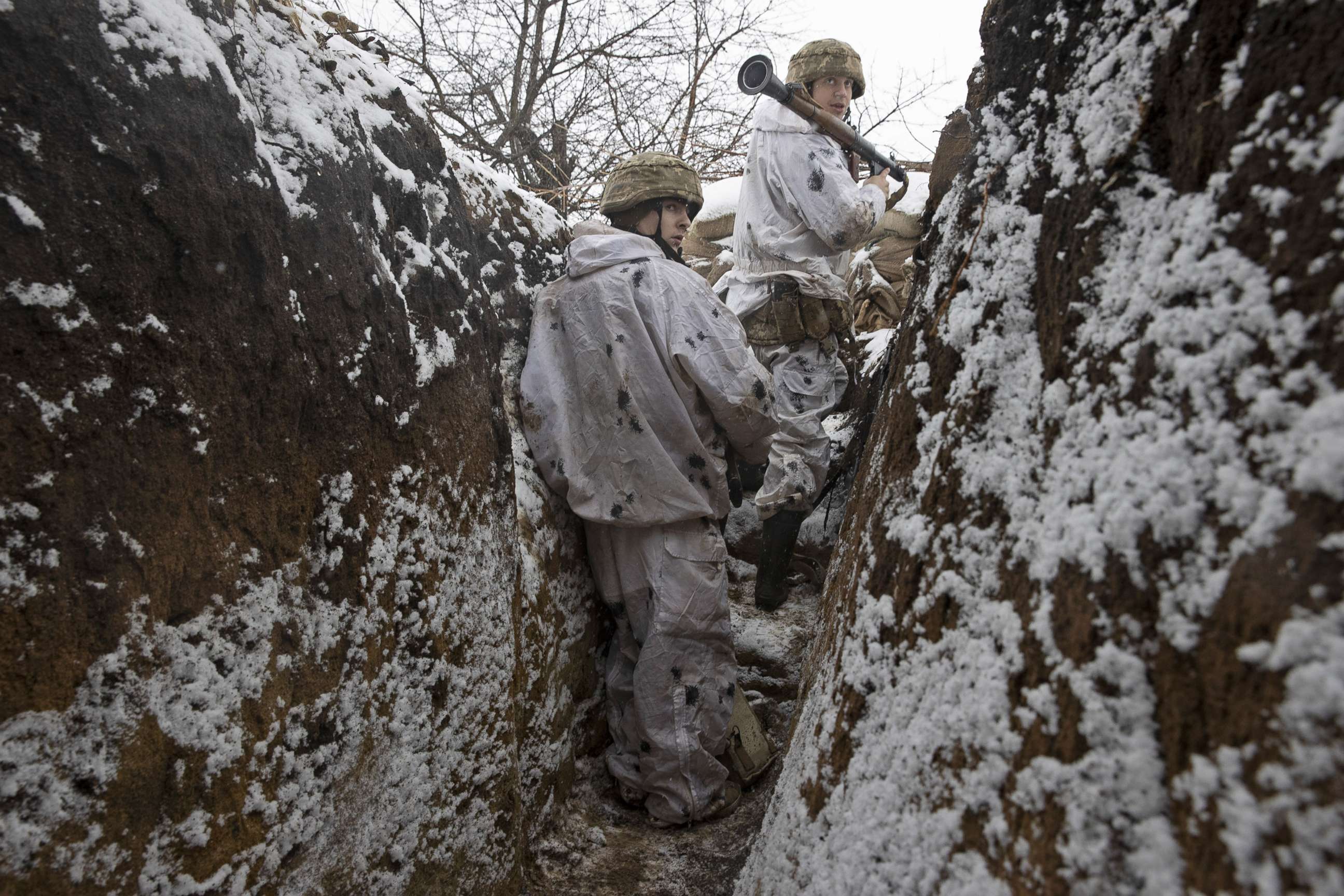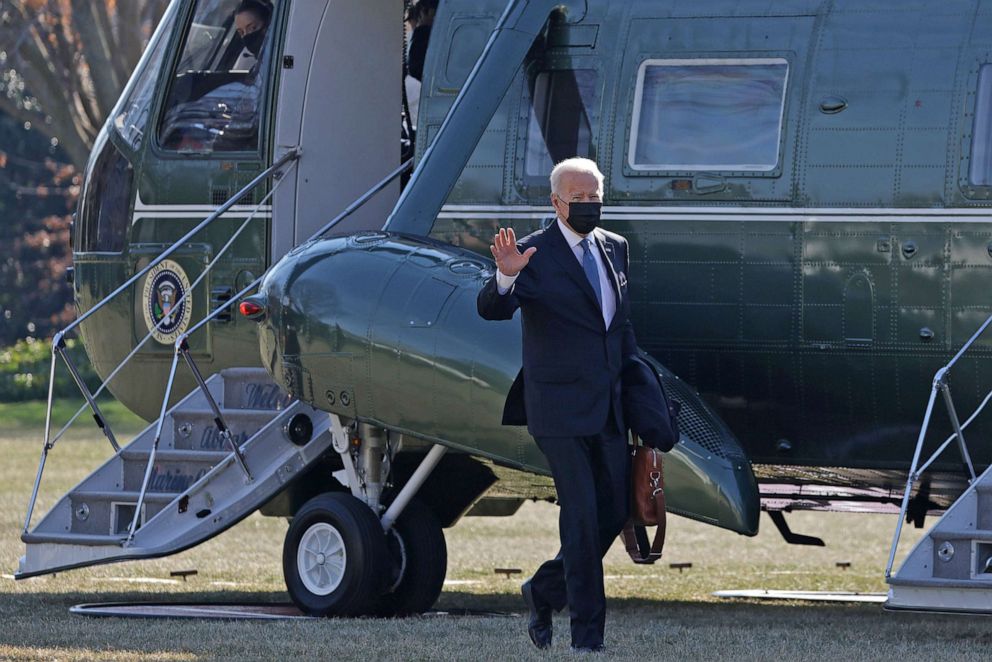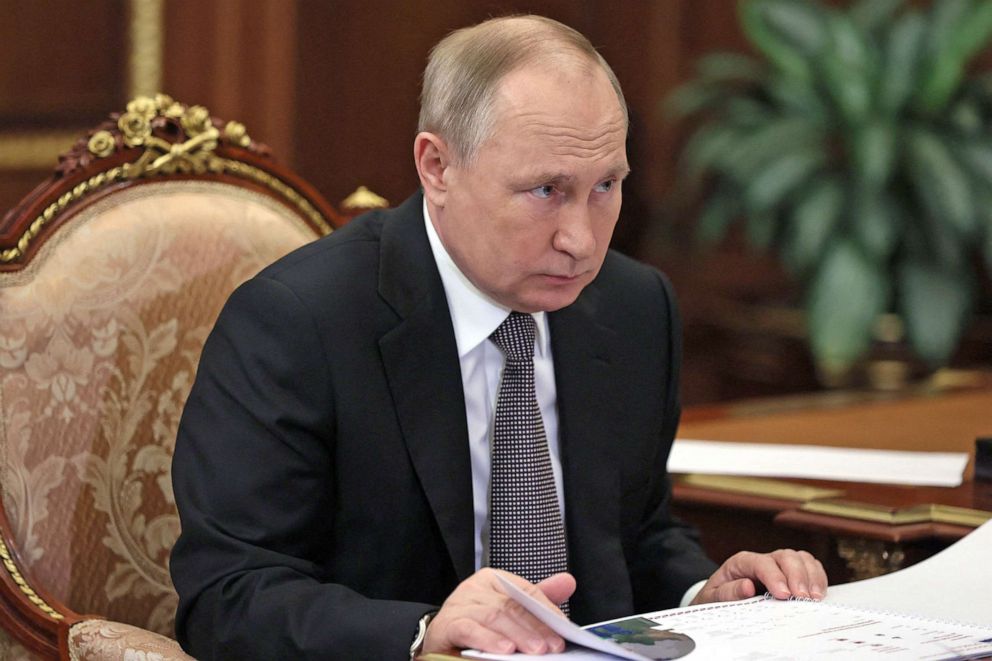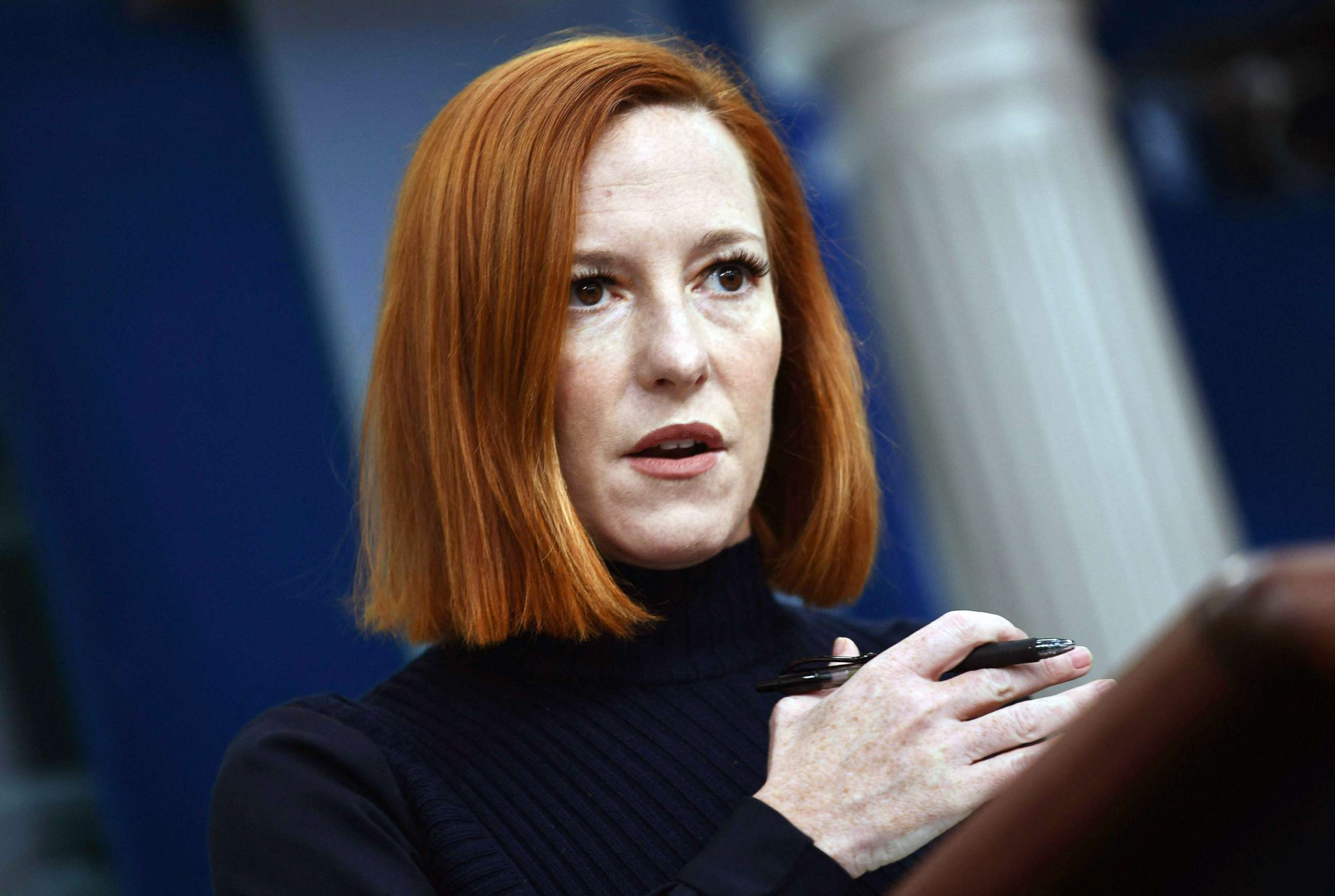Biden meets with Europeans about Ukraine as US puts 8,500 troops on 'heightened alert' to be sent to region
His administration considered sending more U.S. troops to the region.
President Joe Biden held a video call with European allies on Monday as Western nations warned the threat of a Russian invasion of Ukraine remained high and the United States put thousands of troops on alert to be sent to the region if needed.
The call was with the leaders of the European Commission, European Council, NATO, France, Germany, Italy, Poland and the United Kingdom, according to the White House, which said they planned to "discuss diplomacy, deterrence and defense efforts" as well as what would constitute potential sanctions against Russia. It lasted 1 hour and 20 minutes, the White House said.
The White House said after the call that Biden and European leaders "reiterated their continued concern about the Russian military build-up on Ukraine's borders" and also discussed "preparations to impose massive consequences and severe economic costs on Russia for such actions as well as to reinforce security on NATO's eastern flank."
The statement, though, didn't explicitly mention the possibility of the U.S. sending more troops to the region.
"The leaders underscored their shared desire for a diplomatic resolution to the current tensions and reviewed recent engagements with Russia in multiple formats," the statement from the White House said.
Biden's official @POTUS Twitter account also tweeted a photo of him in the Situation Room for the meeting, with the caption: "Today, I spoke with European leaders in response to Russia's military buildup on Ukraine's borders. We discussed our joint efforts to deter further Russian aggression, such as preparations to impose severe economic costs on Russia and reinforce security on the eastern flank."
Earlier, at the end of opening remarks at a meeting on economic competition, Biden said the U.S. and its European allies had "total unanimity" on Ukraine.
"I had a very, very, very good meeting. Total unanimity with all the European leaders," the president said.
The Pentagon announced Monday that Defense Secretary Lloyd Austin had placed around 8,500 U.S.-based troops on "heightened alert" for rapid deployment to assist NATO if needed.
No decision to deploy them had been made, though, according to Pentagon spokesman John Kirby, who noted that the U.S. could also offer troops already stationed in Europe.

Asked if those troops could be sent directly to Ukraine, Kirby indicated there had been no change to when Biden said last month, that sending troops to the country was "not on the table."
Kirby said there had been "no decisions" about moving the fewer than 200 U.S. troops who are already in Ukraine out of the country; those service members have been training members of the Ukrainian military.
He said the personnel included "additional brigade combat teams, logistics personnel, medical support, aviation support, intelligence, surveillance and reconnaissance, as well as transportation, and maybe even some additional capabilities after that."
Biden's administration has developed a range of options as it seeks to reassure European allies while deterring Russia, including sending more U.S. troops to the region, a U.S. official told ABC News. But the official stressed that "no decisions have been made" yet, and the White House denied there had been any shift in strategy.
On Monday, the U.S. Department of Homeland Security warned that the U.S. response to a possible Russian invasion could result in a cyberattack launched against the U.S. by the Russian government or its proxies.

The New York Times, citing unnamed Biden administration officials, reported Sunday that over the weekend, senior Pentagon officials presented the president several options about moving American military assets closer to Russia.
One choice, the Times reported, involved sending 1,000 to 5,000 American troops to Eastern European countries.
A senior Russian member of parliament on Monday said Russia would "give a relevant response to the escalating threats," in response to the Times' article.
"Obviously, Russia will not let such actions slide," Andrei Kartapolov, the chairman of the State Duma Defense Committee, said.
White House press secretary Jen Psaki on Monday declined to confirm the specifics of the Times' report -- or provide a timeline for Biden to make a decision on sending troops -- but said the U.S. strategy had not shifted.
"We've always said we would reinforce our allies on the eastern flank" of NATO, she said. "And those conversations and discussions have certainly been part of what our national security officials have been discussing with their counterparts now for several weeks."

Biden has, in fact, publicly threatened to send more troops to eastern Europe if Russia's President Vladimir Putin escalated the situation militarily.
"We're going to actually increase troop presence in Poland, in Romania, et cetera, if in fact he moves, because we have a sacred obligation in Article 5 to defend those countries," Biden said Wednesday, referring to the principle of collective defense enshrined in the NATO treaty.
The president met with national security advisers on Saturday while he was at Camp David, the White House said.
NATO on Monday outlined several steps that its member nations had taken to deter Russia from invading, including deploying troops and ships.
The Kremlin, which has denied Russia plans to invade Ukraine, said Monday that NATO's latest statement about deployments "leads to the further escalation of tensions."
"Please note that all of that is not happening because of what we, Russia, do," Kremlin spokesman Dmitry Peskov said. "This is happening because of the actions of NATO and the United States and the information they release."

On Sunday, the State Department Department ordered diplomats' families Sunday afternoon to depart the U.S. embassy in Ukraine's capital, Kyiv, amid heightened fears of a Russian attack on the country.
In an updated travel advisory issued later Sunday, the State Department confirmed the drawdown and urged U.S. citizens in Ukraine to consider departing the country now using commercial flights.
And on Saturday, the British government accused Moscow of "looking to install a pro-Russian leader in Kyiv as it considers whether to invade and occupy Ukraine." Russia's foreign ministry denied that was the case.
Psaki on Monday threatened a response if Russia moved forward with such a plan.
"Reports of this kind of plotting are deeply concerning," she said. "If acted upon would constitute a severe escalation, and certainly there would be consequences."
ABC News' Luis Martinez, Matt Seyler, Justin Gomez, Conor Finnegan, Tanya Stukalova, Patrick Reevell, Cindy Smith and Kirit Radia contributed to this report.